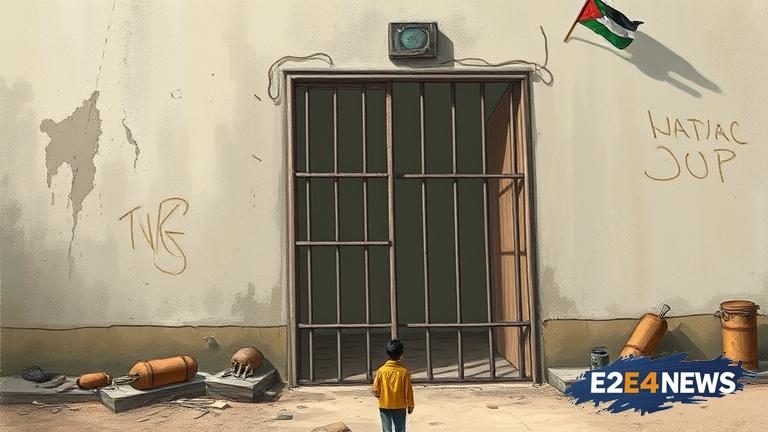The plight of Palestinian prisoners in Israeli jails has been a longstanding issue, with many facing harsh conditions, including medical neglect, torture, and isolation. Despite international condemnation, the situation remains dire, with prisoners often being denied basic human rights. The Israeli authorities have been accused of using torture and other forms of coercion to extract confessions from prisoners, with many being held in administrative detention without charge or trial. The use of solitary confinement is also widespread, with prisoners being held in isolation for extended periods, often without access to basic amenities. The medical care provided to prisoners is often inadequate, with many being denied access to necessary treatment, leading to a deterioration in their health. The situation is further exacerbated by the lack of access to education and recreational activities, leaving prisoners with limited opportunities for personal development. The Israeli authorities have also been accused of restricting family visits, making it difficult for prisoners to maintain contact with their loved ones. The international community has been criticized for its failure to take decisive action to address the situation, with many calling for greater pressure to be placed on Israel to comply with international law. The Palestinian Authority has also been accused of not doing enough to support prisoners, with many feeling abandoned and forgotten. The issue of Palestinian prisoners is a highly emotive one, with many seeing it as a symbol of the broader struggle for Palestinian rights and freedom. The use of administrative detention has been particularly contentious, with many arguing that it is a form of collective punishment. The Israeli authorities have defended their use of administrative detention, arguing that it is necessary to prevent attacks and maintain security. However, human rights groups have disputed this, arguing that it is often used as a means of punishing prisoners without charge or trial. The situation is further complicated by the fact that many prisoners are being held in jails inside Israel, making it difficult for families to visit. The Palestinian prisoners’ movement has been at the forefront of the struggle for Palestinian rights, with many prisoners becoming prominent figures in the movement. The use of hunger strikes has been a key tactic, with prisoners using it to protest their conditions and demand better treatment. The international community has been urged to take greater action to support Palestinian prisoners, including calling for their release and an end to the use of administrative detention. The situation is a stark reminder of the ongoing occupation and the need for a lasting resolution to the conflict. The Palestinian prisoners’ issue is a complex one, with many different factors at play, but at its heart, it is a story of human suffering and the struggle for dignity and freedom. The international community must do more to address the situation and ensure that Palestinian prisoners are treated with the dignity and respect they deserve. The Israeli authorities must also be held to account for their actions, and the use of torture, solitary confinement, and administrative detention must be brought to an end. The Palestinian Authority must also do more to support prisoners, including providing greater assistance to families and advocating for their release. Ultimately, the situation of Palestinian prisoners is a symptom of a broader disease, one that can only be cured through a lasting resolution to the conflict and an end to the occupation.
